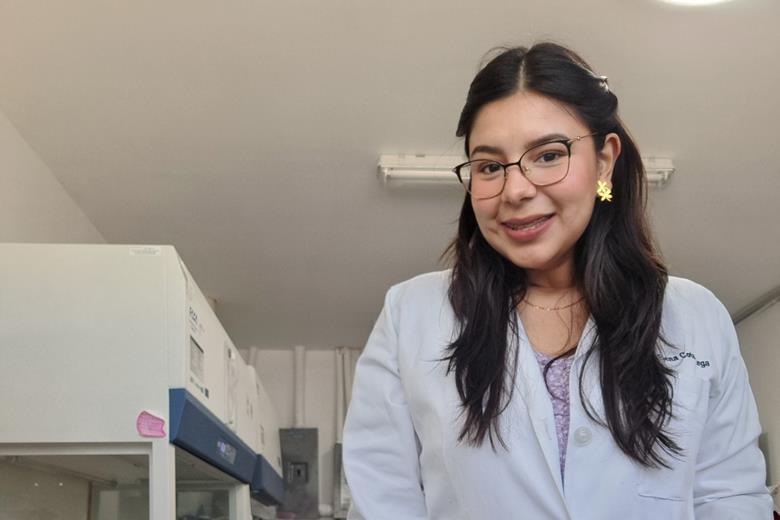Q&A: Laura Elena Cota Ortega on her AMI-sponsored summer placement in Spain

Laura Elena Cota Ortega travelled from Mexico to Spain for her Applied Microbiology International sponsored summer placement investigating the intricate mechanisms of virulence and antimicrobial resistance.
A 25-year-old Mexican currently pursuing her first year of master’s studies at the Northwest Biological Research Center (CIBNOR), La Paz unit, Mexico, Laura’s research interests are focused on characterizing the mechanisms of virulence and antimicrobial resistance in bacterial strains belonging to the Vibrio genus, which were previously isolated from different shrimp farms across Mexico. Here, she opens the lid on how her placement is going.
Where are you doing your placement?
I am currently engaged in research at the Catalan Institute of Water Research in Girona, Spain. I am working closely with Dr. José Luis Balcazar, who serves as the primary supervisor in our laboratory. My work involves a combination of genomics and bioinformatics techniques, including genome assembly, annotation, and comparison. These methods are used to delve into the intricate mechanisms of virulence and antimicrobial resistance.
Additionally, I am conducting experiments that involve conjugation and/or transformation assays to analyze the transferability of these virulence and antimicrobial resistance determinants. This multifaceted approach allows us to gain a comprehensive understanding of the transmission and resistance patterns of these important biological factors
What are you personally working on?
This has been an enriching experience for me, which has provided abundant learning opportunities. During this period, I have been able to develop skills focused on the analysis of biological data through bioinformatic techniques and programming languages.
Additionally, I have gained a solid understanding in the use of various software tools for genomic assembly and have demonstrated competence in the use of online platforms to conduct high-quality analysis and achieve precise identifications. These competencies allow me to excel in my work and make a significant contribution to the field of genomics and bioinformatics.
What are you finding?
I began my journey in bioinformatics by utilizing three specialized software programs for genome assembly. This approach enabled me to compare and identify the optimal results for my further analyses. Currently, I am immersed in laboratory work, conducting bacterial transformations, and performing tests to determine minimum concentrations, among other analyses.
What does this mean for the problem that you are addressing?
In my work focused on shrimp aquaculture, a critical issue I tackle revolves around understanding the intricate relationships within the bacterial community and their interactions with the host organisms.
A key concern lies in comprehending the functions of resistance genes and the mechanisms through which they are transferred and disseminated. Equally vital is deciphering whether these ubiquitous plasmids are interconnected within the biological community, irrespective of genus or species.
This research gains paramount significance in the context of global food security, addressing the challenges related to the worldwide demand for sustenance.
What are you going to do next?
Having completed my master’s degree, I am passionate about continuing my research journey, particularly delving into the behavior of bacterial communities that pose significant mortality threats in aquaculture. To further explore this area, I am committed to pursuing a doctorate, focusing on advanced bioinformatic analyses.
This research aims to shed light on specific community traits, their interactions with hosts, and, notably, the implications these interactions might have on human health. Given the pressing concerns surrounding antibiotic resistance and its rampant misuse in aquaculture, this research is pivotal for developing sustainable and responsible practices in the field.
What is your least favorite job in the lab?
Learning to program and diving into the world of bioinformatics from scratch was one of the most challenging parts of my stay.
One of the experiences I emphasize the most is dealing with beginner’s errors. At times, my least favorite part was encountering thousands of errors when programming without sometimes understanding the origin of the error, which resulted in frustration.
Learning how everything worked was difficult. However, I recognized that this struggle was an integral part of the learning process. Embracing these challenges allowed me to acquire valuable knowledge and skills, turning every setback into a valuable lesson during my learning journey. Every mistake made became an opportunity to grow
and improve.
